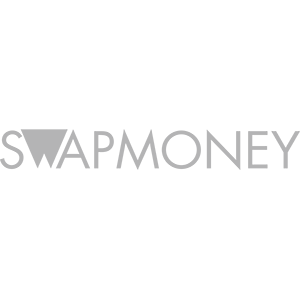Fintech start-ups are full of aspiration, brimming with novel ideas which get pitched to investors on a wave of enthusiasm and hope. Whether they are a digital retailer, an embedded banking service or a Fintech, too many fall at almost the first hurdle when they have to start putting together all the regulations and capital needed to operate. But it doesn’t have to be like this – you don’t have to re-invent the wheel when you’re a start up. You don’t have to start from scratch.
Luckily there’s a way.
It’s called partnerships. Businesses can quickly go straight from A-Z and get to market quickly by having access to an existing ecosystem of pre-integrated partners, and using their services through Currencycloud. They can achieve what they want in weeks not months or even years, meaning initial build costs are much more cost-effective too – a fraction of what it would be to start from scratch by themselves.
With Fintech, there’s no one-size-fits all
All businesses, whether it’s a digital retailer, a Fintech, or embedded banking services, have one thing in common: they need to evolve quickly as their customers’ needs are constantly changing. It’s important that Fintechs use the services of an established organization that from the start works with where they are now while keeping in mind where they are going in the future. For example, today they might need to store money for their customer, then not too far off that could evolve to wanting to offer their customers named accounts.
For start-ups starting out it’s a marathon, not a sprint
Most Fintechs starting out see a problem, and set out to fix it themselves and be better. It’s the classic origin story of many Fintechs out there: they saw an everyday challenge for the customer and fixed it. Problems like the punitive fees when sending money to family in other countries, or the costly ATM charges when people are on holiday. But the backstory is often more complicated.
Starting out, a Fintech might boil their revolutionary idea down to an MVP…what some call tongue-in-cheek a ‘Minimum Viable Powerpoint’ and go off to raise the seed money to fund it. They are then on the runway. And they will need to rely on speed to really take off.
Trouble is, at this point, most Fintechs will stall…or end up in a holding pattern. So the first thing they need to do is find a bank, and also get some form of regulation to offer their services. This means they need experienced people, clear policies, and processes all in place to enable this. Not to mention a huge amount of capital investment behind them. All of a sudden everything grinds to a halt. Months, even years, can go by spending a lot of money before they’ve even launched their first product, won one customer or invested in a marketing campaign. The very essence of being a Fintech: moving fast, being agile, and spending little, feel frustratingly out of reach.
Careful how you pick your partner
If you’re relying on your own expertise across all aspects of building a financial product, service or solution, the task can look insurmountable right from the outset. You don’t have to do it by yourself: no one, but no one, does this.
So using outside expertise seems like a sensible idea. However, not all providers are the same. You’ve got to do some due diligence to ensure they’re not just smoke and mirrors. You also want to guarantee that, even if someone can support you functionally, they’re also the right fit for your business culturally . This can all take time (and maybe even some trial and error).
A snapshot of the ‘Complexity Tax’
Next up, once you’ve picked the partners you want to work with, you have to build the mechanism to piece them all together. Welcome to the ‘Complexity Tax’ that are the various layers in financial technology. Here, every partner is no doubt a subject matter expert in what they do. However, it’s doubtful that they’ll fully understand what other partners in the chain are doing. That means you need to quickly develop a complete picture of what all providers offer, where there’s overlap, where there are gaps and how it all comes together to make your Minimum Viable Product (MVP) – not Powerpoint! Remember, this is all just for the basic happy customer experience path and long before you’ve even thought about exception handling, fault tolerance or iterations for a better user-experience. Suddenly, the vendor swimlane diagram you were putting together looks more like a modern day Jackson Pollock and doing everything all by yourself now seems like a preferred option!
But is there another way? What if there were partners that already understood the issues and worked together to create best in breed solutions before you knew you needed them? How great would it be if there was an existing ecosystem of providers who already understood each others’ businesses – specifically the people, the products and services on offer? That would mean you could turn up to a marketplace of organizations – some with pre-built, customizable integrations with each other – so you could quickly assemble your MVP and leverage the experience these companies have so you don’t need to reinvent the wheel every time.
This strips away the Complexity Tax, ensures your product or service is sitting on the best tech infrastructure, and enables you to focus on what you want for your budding business.
Plug and play banking
The good news is, Fintechs don’t have to make an either/or decision as to whose services to access to grow, to be in compliance, and to stay competitive. In one integration, Fintechs can now access all these services and more, and rapidly get to market – offering just what they want. Many can even build their own truly bespoke transactional bank without even having a banking license.
Currencycloud Fuse is a partnership ecosystem which can scale and flex, helping Fintechs get up and running without the costly and time-consuming experience of doing it themselves. By entering our ecosystem of partners, Fintechs can use their services through Currencycloud via an existing integration or a referral.
Having access to these organizations puts Fintechs in the driving seat: giving them the freedom to make tweaks or bold leaps as they grow and their customers’ needs change.
Currencycloud Fuse is a ready-made network of best-in-breed organizations who work collaboratively; transforming the way payments and banking work. There are no hurdles to leap, there’s no endless red tape to wade through. Whichever of the established organizations a Fintech chooses to partner with, there’s the peace of mind that the relationship is backed by Currencycloud’s robust regulation and compliance.
For payments, Currencycloud partners with Visa, GPS, Dwolla, Moov, Tribe, Carta Worldwide and Enfuce. For Banking, you can choose Mambu or Radius Bank. For professional services, there’s Accenture, ComplyAdvantage, and Elixirr. For card issuing, there’s Transact Payments. They are all part of the Currencycloud Fuse ecosystem.
Currencycloud Fuse fosters collaborative digital-first partnerships designed to liberate Fintechs to do things boldly: the key to future success is finding the right partnerships.
For more information on how a proven partnership ecosystem can work, take a look at Currencycloud Fuse.




